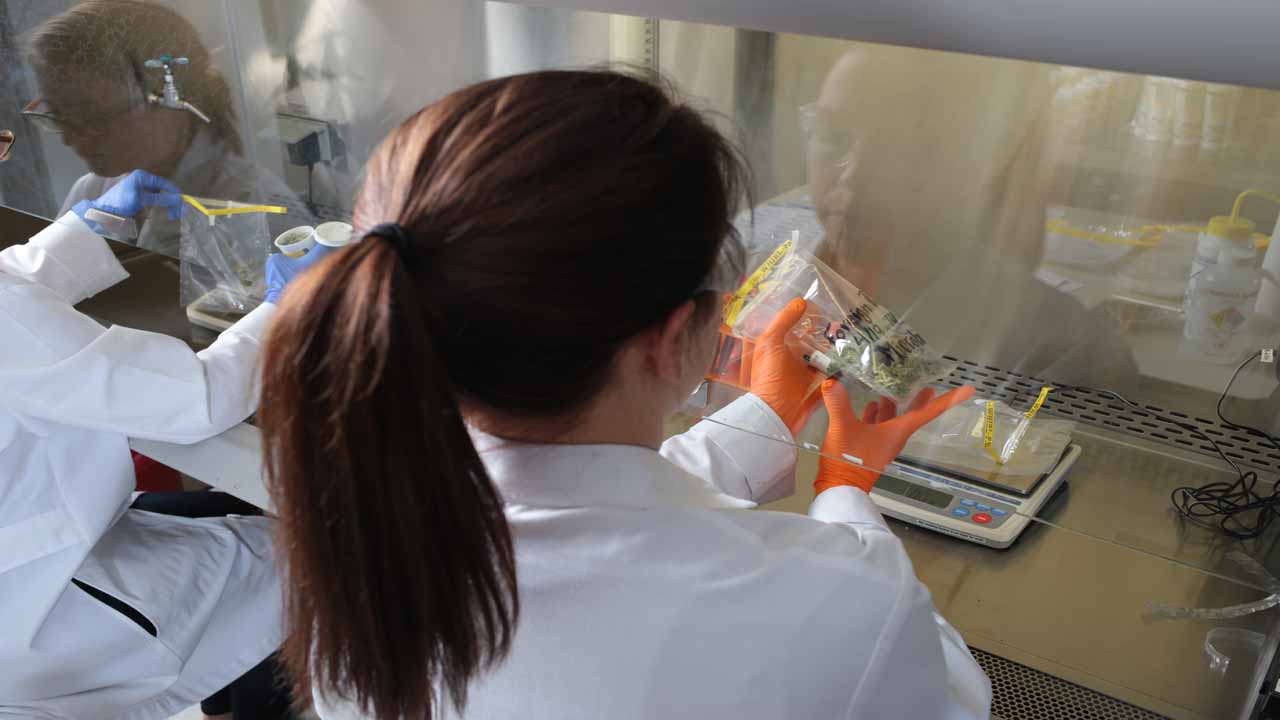A Massachusetts marijuana testing lab has filed a lawsuit accusing eight competitors of “fraudulent” practices of inflating THC potency and manipulating safety results to allow potentially tainted products into the market.
The complaint, filed Jan. 30 by MCR Labs in Suffolk County Superior Court, follows years of allegations in the industry that labs are deliberately falsifying data to please clients and that state cannabis regulators have been unable to rectify the problem.
The lawsuit also cites lab data held by the state, obtained via public-records requests, that it says supports its claims of potency inflation.
Lab ‘shopping’ in play, suit claims
“This race-to-the-bottom willingness to manipulate testing … results in unknowing consumers overpaying for lower-potency cannabis riddled with dangerous contaminants,” the lawsuit claims in part.
According to the suit, “judicial intervention is needed to revive lawful competition by honest brokers in the marketplace and restore trust among consumers.”
Labs that claim they’re following the rules – and returning THC potency results lower than their competitors, leading producers to “shop” for a friendly lab – say they’re losing business to unscrupulous labs willing to compromise.
MCR Labs once held nearly 50% of the market but steadily lost that share to dishonest competitors, according to the lawsuit.
Massachusetts has 15 licensed independent testing labs, according to state Cannabis Control Commission data.
MCR Labs’ lawsuit names eight of them:
- Analytics Labs
- Assured Testing Laboratories
- CDX Analytics
- Green Analytics Massachusetts (formerly Steep Hill Massachusetts)
- Green Valley Analytics
- Kaycha MA
- Massbiolytics Corp.
- SafeTiva Labs
The defendants have yet to secure counsel or respond to MCR’s complaint, according to the court docket.
Allegations of inflated THC, moldy cannabis for sale
According to the complaint, one cultivator that switched labs from MCR to Analytics Labs saw its THC potency increase by 43.7%.
A second defendant, Assured Testing, returns THC totals “approximately 14.5% higher” than the state average, according to the suit.
The suit notes that Massachusetts recorded 37 instances of cannabis flower testing at 40% or higher – a total considered impossible for a non-concentrated product.
One lab, Green Valley Analytics, was responsible for 36 of those results, the lawsuit alleges.
Several other unidentified cultivators switched from MCR Labs to defendant labs for mold testing.
According to the lawsuit, a cultivator’s failure rate dropped from 16.4% to 0% after switching to Assured Testing.
Another cultivator’s failure rate dropped from 23.% to 0% when the cultivator started testing with Green Analytics, according to the suit.
“This drastic elimination of mold failures cannot be explained by anything other than result manipulation,” the lawsuit added, in part.
Plaintiffs demand compensation and a halt
The lawsuit asks for a court order barring future data manipulation as well as “all profits derived” by the defendant labs.
“Honest and accurate testing is essential for consumer safety, public health, and a fair and prosperous market,” MCR Labs said in a statement.
“Fraudulent testing practices harm patients, consumers, industry workers, and ethical businesses.
“We have fought against widespread result manipulation in the cannabis industry for years.”
2024 MJBiz Factbook – now available!
Exclusive industry data and analysis to help you make informed business decisions and avoid costly missteps. All the facts, none of the hype.
Featured inside:
- Financial forecasts + capital investment trends
- 200+ pages and 49 charts highlighting key data figures and sales trends
- State-by-state guide to regulations, taxes & market opportunities
- Monthly and quarterly updates, with new data & insights
- And more!
Medical Disclaimer:
The information provided in these blog posts is intended for general informational and educational purposes only. It is not a substitute for professional medical advice, diagnosis, or treatment. Always seek the advice of your physician or other qualified healthcare provider with any questions you may have regarding a medical condition. The use of any information provided in these blog posts is solely at your own risk. The authors and the website do not recommend or endorse any specific products, treatments, or procedures mentioned. Reliance on any information in these blog posts is solely at your own discretion.






